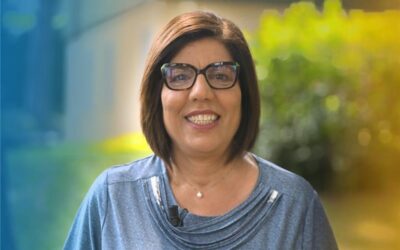 Located in an area where there are evident signs of both poverty and development, the Mariapolis has a distinctive social feel that is highlighted by the school for children and teenagers, and a business park inspired by the Economy of Communion.
Located in an area where there are evident signs of both poverty and development, the Mariapolis has a distinctive social feel that is highlighted by the school for children and teenagers, and a business park inspired by the Economy of Communion.
Since the 1960s Chiara Lubich saw the permanent Mariapolises as miniature “cities” that would show that a better and more united world is possible. Mariapolis Santa Maria is one of these twenty little cities spread around the world. Chiara Lubich had visited this site during her third visit to Brazil in 1965.
The school, named Santa Maria, has been operating for nearly 50 years. Ten of its current teachers and workers are ex-students. Others have entered into professions and some hold positions of responsibility in society. The values transmitted to them have remained with them: the culture of sharing, the art of loving and an education to peace. Maria Voce and Giancarlo Faletti were warmly welcomed at the school by the smallest members of the school orchestra performing Talents at the Service of Peace.
 The majority of families have low incomes. The school is economically supported with national and international solidarity through the Focolare’s New Families projects and AMU. The first classes of reading and writing were offered to the workers at the Mariapolis, then to their children by request. Now the educational approach of this school is spreading to other schools of the region and in other educational environments.
The majority of families have low incomes. The school is economically supported with national and international solidarity through the Focolare’s New Families projects and AMU. The first classes of reading and writing were offered to the workers at the Mariapolis, then to their children by request. Now the educational approach of this school is spreading to other schools of the region and in other educational environments.
Ginetta Business Park is located just a few kilometres away. There Maria Voce and Giancarlo Faletti were welcomed by administrators of the park, business people, shareholders and researchers of the Economy of Communion in Pernambuco. They described their successes and challenges. Giancarlo Faletti recalled that Chiara’s initial inspiration took place in Brazil in 1991. Maria Voce expressed gratitude for the commitment that was undertaken in a spirit of complete generosity. Then there was a visit to the buildings that house two of the businesses; the first dedicated to the manufacturing of bags and accessories, the other to the manufacturing of furniture.
The Mayor of Igarassu, who called the Mariapolis a “landmark” of his city because of the school and business park, gave the keys of the city to Maria Voce and Giancarlo Faletti, on behalf of the citizens, as a sign of gratitude and desire for an even closer bond.
Follow the journey on the Mariapolis Journal– Login required
Website: www.focolares.org.br/sitenacional




0 Comments